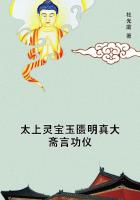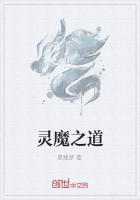[In the autumn of 1883, during Henry Irving's fist engagement in New York, Ellen Terry played a round of characters as his leading lady.
In the _Tribune_, Mr. William Winter said: "Miss Ellen Terry's Portia is delicious. Her voice is perfect music. Her clear, bell-like elocution is more than a refreshment, it is a luxury. Her ****** manner, always large and adequate, is a great beauty of the art which it so deftly conceals. Her embodiment of a woman's loveliness, such as, in Portia, should he at once stately and fascinating and inspire at once respect and passion, was felicitous beyond the reach of descriptive phrases." Then, on her appearance in "Much Ado About Nothing:" "She permeates the raillery of Beatrice with an indescribable charm of mischievous sweetness. The silver arrows of her pungent wit have no barb, for evidently she does not mean that they shall really wound. Her appearance and carriage are beautiful, and her tones melt into music. There is no hint of the virago here, and even the tone of sarca** is superficial. It is archness playing over kindness that is presented here." On her Ophelia, Mr. Winter remarks: "Ophelia is an image, or personification of innocent, delirious, feminine youth and beauty, and she passes before us in the two stages of sanity and delirium. The embodiment is fully within Miss Terry's reach, and is one of the few unmistakably perfect creations with which dramatic art has illumined literature and adorned the stage."By permission the following pages have been taken from "Ellen Terry's Memoirs," copyright by the S. S. McClure Company, 1908. All rights reserved. ED.)HAMLET--IRVING'S GREATEST PART
When I went with Coghlan to see Henry Irving's Philip I was no stranger to his acting. I had been present with Tom Taylor, then dramatic critic of the _Times_, at the famous first night at the Lyceum, in 1874, when Henry put his fortune--counted, not in gold, but in years of scorned delights and laborious days, years of constant study and reflection, of Spartan self-denial and deep melancholy--when he put it all to the touch "to win or lose it all." This is no exaggeration. Hamlet was by far the greatest part that he had ever played or ever was to play. If he had failed--but why pursue it? He could not fail.
Yet, the success on the first night at the Lyceum, in 1874, was not of that electrical, almost hysterical splendour which has greeted the momentous achievements of some actors. The first two acts were received with indifference. The people could not see how packed they were with superb acting--perhaps because the new Hamlet was so ******, so quiet, so free from the exhibition of actors' artifices which used to bring down the house in "Louis XI" and in "Richelieu," but which were really the easy things in acting, and in "Richelieu" (in my opinion) not especially well done. In "Hamlet" Henry Irving did not go to the audience; he made them come to him. Slowly, but surely, attention gave place to admiration, admiration to enthusiasm, enthusiasm to triumphant acclaim.
I have seen many Hamlets,--Fechter, Charles Kean, Rossi, Friedrich Haase, Forbes-Robertson, and my own son, Gordon Craig, among them,--but they were not in the same hemisphere! I refuse to go and see Hamlets now. I want to keep Henry Irving's fresh and clear in my memory until I die.
THE BIRMINGHAM NIGHT
When he engaged me to play Ophelia in 1878, he asked me to go down to Birmingham to see the play, and that night I saw what I shall always consider the perfection of acting. It had been wonderful in 1874; in 1878 it was far more wonderful. It has been said that when he had the "advantage" of my Ophelia his Hamlet "improved." I don't think so; he was always quite independent of the people with whom he acted.
The Birmingham night he knew I was there. He played--I say it without vanity--for me. We players are not above that weakness, if it be a weakness. If ever anything inspires us to do our best, it is the presence in the audience of some fellow-artist who must, in the nature of things, know more completely than any one what we intend, what we do, what we feel. The response from such a member of the audience flies across the footlights to us like a flame. I felt it once when Iplayed Olivia before Eleonora Duse. I felt that she felt it once when she played Marguerite Gautier for me.
When I read "Hamlet" now, everything that Henry did in it seems to me more absolutely right even than I thought at the time. I would give much to be able to record it all in detail, but--it may be my fault--writing is not the medium in which this can be done. Sometimes I have thought of giving readings of "Hamlet," for I can remember every tone of Henry's voice, every emphasis, every shade of meaning that he saw in the lines and made manifest to the discerning. Yes, Ithink I could give some pale idea of what his Hamlet was if I read the play!
"Words, words, words!" What is it to say, for instance, that the cardinal qualities of his Prince of Denmark were strength, delicacy, distinction? There was never a touch of commonness. Whatever he did or said, blood and breeding pervaded it.
THE ENTRANCE SCENE IN "HAMLET"
His "make-up" was very pale, and this made his face beautiful when one was close to him, but at a distance it gave him a haggard look. Some said he looked twice his age.
He kept three things going at the same time--the antic madness, the sanity, the sense of the theatre. The last was to all that he imagined and thought what, in the New Testament, charity is said to be to all other virtues.
He was never cross or moody--only melancholy. His melancholy was as ****** as it was profound. It was touching, too, rather than defiant.
You never thought that he was wantonly sad and enjoying his own misery.
He neglected no _coup de theatre_ [theatrical artifice] to assist him, but who notices the servants when the host is present?














